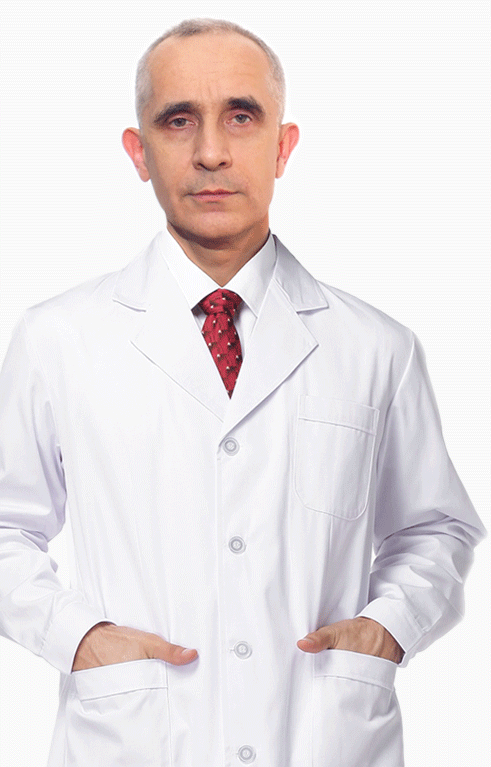Welcome to the site,
MANZHURA A. I.UROLOGIST-ANDROLOGIST-VENEROLOGIST
Alexander Ivanovich Manzhura, graduated from the Bogomolets Kiev Medical Institute. Urologist-andrologist of the highest qualification category, specialization “Urology, Andrology, Sexology”, “Ultrasound Diagnostics” on the basis of the Kiev Medical Academy of Postgraduate Education, Research Institute of Urology and Andrology.
RECORDING FOR RECEPTION
Reception is carried out by appointment, in several districts of Kiev and the region
URGENT ASSISTANCE
Mob. tel.: +38 050 410 72 39
Mob. tel.: +38 097 703 03 03
Email: 03@urolog-kiev.com
SCHEDULE
Reception is held in several districts of kiev and the region. Check out the graph on the page
Schedule ...
BASIC SERVICES
PRACTICAL AREAS
10 reasons to see a urologist
 Taking care of your health today is the key to a comfortable and active tomorrow
Taking care of your health today is the key to a comfortable and active tomorrow
I will tell you about the problems with which it is worth going to the urologist, and which symptoms you should not be afraid of - Alexander Ivanovich Manzhura, urologist-andrologist-venereologist of the highest qualification category.
The presence of blood in the urine may indicate prostate adenoma, bladder cancer, or kidney cancer. These symptoms should not be ignored, especially by smokers. The presence of blood in the semen indicates the presence of vesiculitis and STDs (often) and much less often the presence of a tumour.
Disorders of the urinary system::
- discomfort when urinating,
- pain in the perineum, lower back (on one side) or testicles,
- weak stream of urine,
- extraneous discharge from the urinary canal, more often in the morning
- frequent urge to urinate at night,
- urinary incontinence.
Often these unpleasant phenomena can be symptoms of prostate adenoma (more often) or prostate cancer (less often), but adenoma is not always a sentence. In about half of men, an adenoma (benign prostatic hyperplasia) manifests itself in the form of complaints, and only 25–30% of these patients may need surgery. For the rest, a regular observation by a doctor and taking medications is enough.
Change of 2 or more sexual partners throughout the year, without using a condom. But it is important to understand that you can get STDs not only during sex but also from the toilet lid or wet towel when visiting saunas and swimming pools. If there are open wounds on the genitals or the period of menstruation, then the likelihood of infection increases. Therefore, every year, both women and men need to be screened for STIs and use barrier methods of contraception.
Dilatation of the veins in the testicles (varicocele) leads to infertility in 15% of cases, but not all men need surgery.
Micropenis (hidden genital organ) in men. Correctly determine its size from the pubic joint, and not from the abdomen. On average, the length of this male organ is 12-16 cm. In the presence of fat on the abdomen - up to 13 cm. Even if this organ is lost due to trauma, there is always a chance for its restoration - with the help of artificial implants-prostheses.
Male infertility — when during the year the conception of a child does not occur, despite regular sexual intercourse. But here you need to take into account the woman's age. The number of oocytes (ovarian reserve) decreases after 35 years.
In men, it is possible:
- absence of sperm in semen (azoospermia);
- violation of the patency of the vas deferens;
- chlamydial or mycoplasma infection as concomitant with trichomoniasis and gonorrhoea (gonorrhoea);
- production of a minimum sperm count due to genetic or hormonal disorders.
Female urinary infections (cystitis, pyelonephritis).
Lump in the scrotum and change in the size of the testes in men. This may be a sign of a slowly growing tumour, incl. testicular cancer. Their different situation should not be alarming.
Lack of erection and anatomical defects of the external genital organs in men associated with the curvature of the penis
- Hydrocele of testicles - an increased accumulation of serous fluid in the membranes of the testicles, is treated with surgery;
- Phimosis, or narrowing of the mouth of the foreskin, is treated surgically, by removing it;
- Cryptorchidism occurs in children only when the testicles after birth have not descended into the scrotum on one or both sides;
- Paraphimosis is an urgent condition requiring urgent reduction or surgical intervention of the flesh - dissection of the foreskin followed by circumcision, similar to phimosis.
Renal colic can be a consequence of urolithiasis. The appearance of calculi in the bladder or in the kidneys is treated with medications (for urolithiasis), adherence to a certain diet and drinking regimen, invasive methods, or (less often) open surgical interventions.
Do not despair if there are alarming symptoms or discomfort in the genitals, but consult a qualified urologist.
There are no clear recommendations for preventive visits to a urologist, but after 35 years, it is necessary to do an ultrasound of internal organs from time to time, including the kidneys, and after 45-50 years, men periodically examine prostate-specific antigen to detect initial or latent prostate cancer and conduct per rectal examination of the prostate.
The main thing is not to waste time and be afraid (ashamed) to go to the doctor with questions. After all, the sooner the problem is identified, the faster it will be eliminated, with better results and long-term consequences.
your doctor Manzhura A.I.


